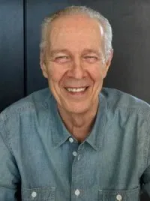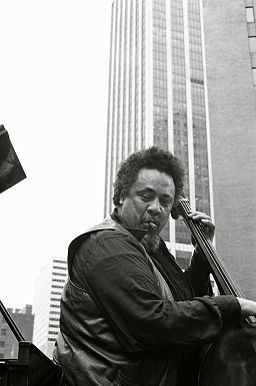.
.
Tom Marcello Webster, New York, USA, CC BY-SA 2.0, via Wikimedia Commons
Charles Mingus is among many of the jazz musicians who have written compositions in tribute to their fellow jazz artists, and Bob Hecht has created an extensive Spotify playlist he calls “Jazz Tributes” that also serves as a kind of “Thanksgiving” greeting – compositions and performances by jazz musicians, for jazz musicians. He explains…
.
.
…..From the time in my teens when I first began to witness great jazz musicians in action, I was impressed not only by the astonishing levels of creativity of which they were capable, but also by the obvious camaraderie and outright affection the musicians held for one another. Witnessing the clear warmth and mutual respect among the musicians on the bandstand was incredibly inspiring to me then, and still is. For jazz is a music filled with love and with reverence for the history of the music and for the contributions of those who came before.
…..One strong sign of the above is how many jazz composers have paid tribute to other jazz artists by writing music in their honor. These tributes are legion within the jazz canon. Some of the most famous include Charles Mingus’ poignant tribute to Lester Young, “Goodbye Pork Pie Hat,” Benny Golson’s “I Remember Clifford,” for Clifford Brown, Wayne Shorter’s “Sweet Pea” in honor of Billy Strayhorn, Thelonious Monk’s tribute to Bud Powell, “In Walked Bud,” Dave Brubeck’s “The Duke” for Mr. Ellington, and Dizzy Gillespie’s “Woody ‘n You” for Woody Herman.
…..Those are just a few of the scores of compositions created to honor the jazz greats. Some of these are definitely elegiac in nature (Lennie Tristano’s “Requiem” for Bird), while others sound like musical love poems (“Goodbye Pork Pie Hat”) and still others are either joyous and fun-filled (Dave Frishberg & Gerry Mulligan’s “Zoot Walks In,” Jimmy Rowles’ “Ballad of Thelonious Monk,” and Jay Leonhart’s list-song tribute to great bass players, “Chuck Domanico”), or burning, up-tempo tributes (Benny Bailey’s “Thelonious Assault,” or Sonny Rollins’ “Blues for Philly Joe.”). And then there is Joe Zawinul’s “Requiem for a Jazz Musician,” which he dedicated to “many of my jazz-musician friends who died of drug-related causes,” Dave Holland’s tribute to Mingus, “Blues for C.M.,” Coltrane’s famous “Blues for Bessie,” for Bessie Smith, Fred Hersch’s “Phantom of the Bopera” for Joe Henderson or his “Child’s Song” for Charlie Haden, and Bill Evans’ “N.Y.C.’s No Lark,” a wrenching and brilliant tribute (and anagram of his name) for Sonny Clark.
…..There are so many such tributes that I felt it would be both educational and fun to assemble an extensive playlist of this marvelous sub-genre of jazz. So here goes…this playlist is by no means comprehensive but does include many of the most outstanding of these loving and reverential compositions. And I hope you have as much fun listening as I did putting this together. It is, in essence, a tribute to all of this music’s great artists, and to the mutual love and respect that jazz often engenders among its practitioners.
.
.
.
.
___
.
.

Bob Hecht frequently contributes his essays, photographs, interviews, playlists and personal stories to Jerry Jazz Musician. He has a long history of producing and hosting jazz radio programs; his former podcast series, The Joys of Jazz, was the 2019 Silver Medal winner in the New York Festivals Radio Awards.
.
.
.
.





























